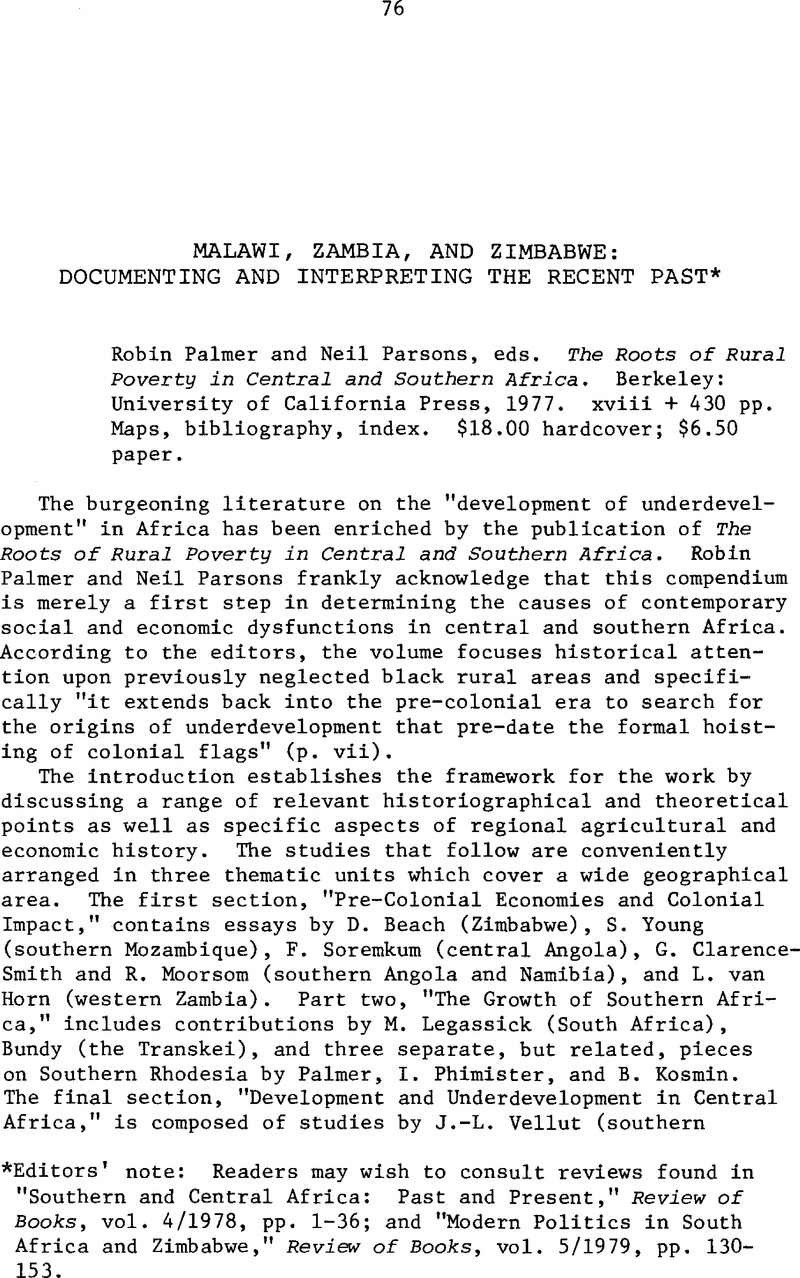No CrossRef data available.
Published online by Cambridge University Press: 23 June 2016

Editors’ note: Readers may wish to consult reviews found in “Southern and Central Africa: Past and Present,” Review of Books, vol. 4/1978, pp. 1-36; and “Modern Politics in South Africa and Zimbabwe,“ Review of Books, vol. 5/1979, pp. 130- 153.
1. According to John Saul and Roger Woods, the African peasantry was created as “primarily the result of the interaction between an international capitalist economic system and traditional socioeconomic systems, within the context of territorially defined colonial political systems.” (See their “African Peasantries,” in Arrighi, Giovanni and Saul, John, eds., Essays on the Political Economy of Africa [New York: Monthly Review Press, 1973], p. 409 Google Scholar.) Although Palmer and Parsons do not subscribe to this interpretation, it has received considerable endorsement. I consider the definition of Saul and Woods too narrow because of its colonial bias.
2. Several of the contributors, including Palmer, Beach, and Bundy, have completed or will shortly finish major monographs. In addition, there is ample evidence of growing interest in African agricultural history. African Economic History 7 (1979) has recently devoted an entire issue to the subject, and a new volume, Klein, Martin, ed., Peasants in Africa, Historical and Contemporary Perspectives (Beverly Hills, Calif.: Sage Publications, 1980)Google Scholar, has appeared.